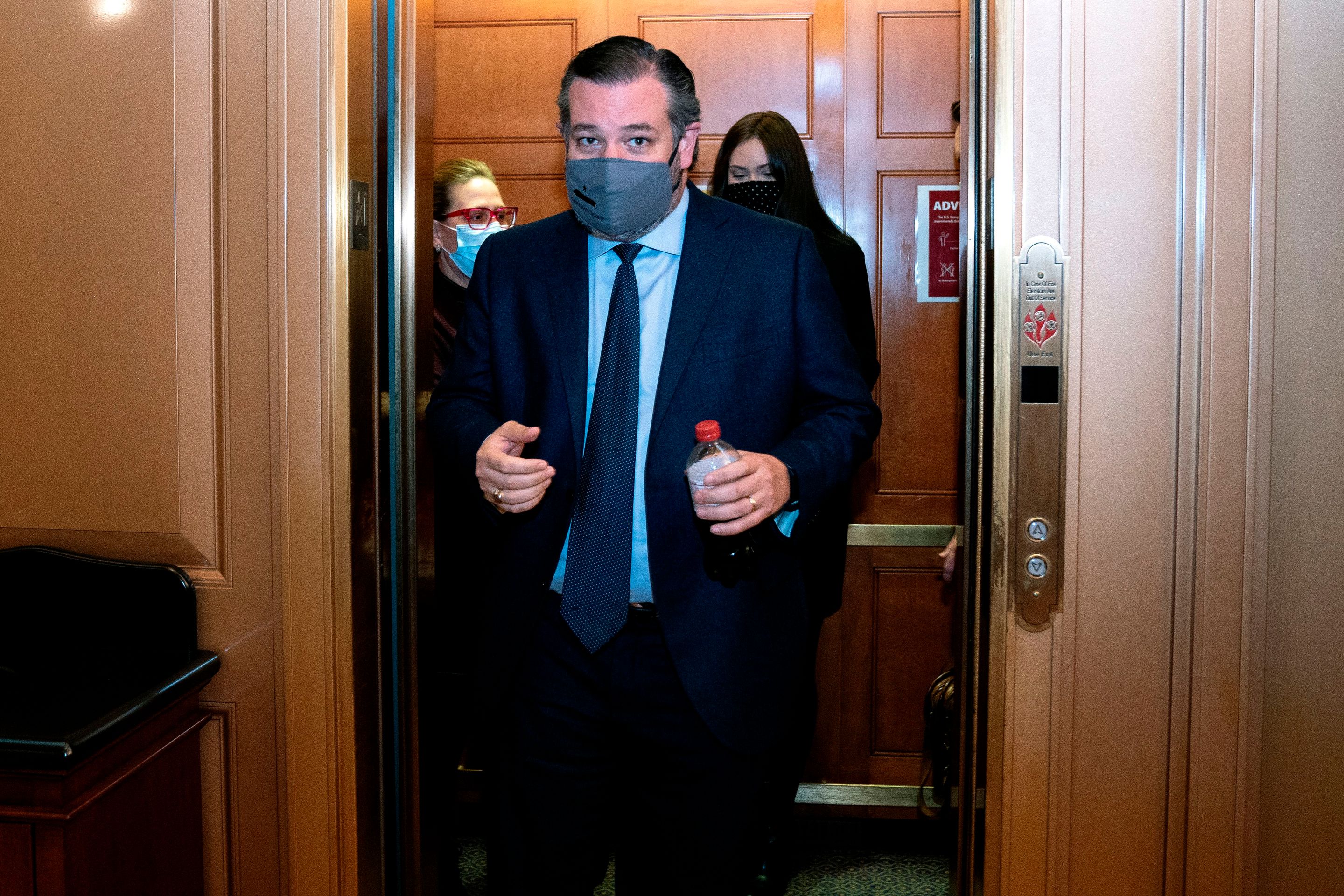Making public information that reveals elected officials to be callous or lying or, say, callously lying about fleeing to tropical beaches while their constituents are boiling snow for water and dying of carbon monoxide poisoning, is obviously good journalism. This is what The New York Times and other outlets did by publishing messages from Heidi Cruz's group texts, which were leaked by others who were in the group, in which she hawked a Thursday-to-Sunday vacation to her friends: "Anyone can or want to leave for the week? We may go to Cancun, there is a direct flight at 445pm and hotels with capacity. Seriously."
While normal people responded with appropriate levels of disgust, there was a subset of people more concerned with the integrity of the almighty group chat, as though an acquaintanceship with Heidi Cruz supersedes membership of her husband's constituency. This group included national political commentators Bakari Sellers and Chris Hayes:
Ppl leaking group chats are equally as awful. But y’all carry on.
— Bakari Sellers (@Bakari_Sellers) February 18, 2021
Leaking group texts...boy I dunno
— Chris Hayes (@chrislhayes) February 19, 2021
Chris Hayes followed up, explaining that though publishing the leaked texts was "good journalism," he had reservations about it as an "interpersonal matter."
Hayes's followup is perhaps even more instructive than his initial tweet, equating as it does a public matter of critical importance to suffering Texans and people who think politicians should be accountable in even the most basic ways to Heidi Cruz being owned by her friends. It can be easy to forget sometimes, especially given the past four years, that elected officials are actually not supposed to operate out of pure self-interest, and that they are supposed to work to serve the public good. Perhaps the person who leaked those texts to the Times wasn't doing so as a person betraying the trust of a friend, but as a constituent who was appalled at the behavior of an elected official.
The fact that there are people who would think, even for only a second, that it's uncool for what was said in a senator's wife's group chat to be made public is evidence of just how completely some people have lost sight of what it is elected officials are supposed to do. Conservative twerps like Ben Shapiro, who has been busy sneering things like What is Ted Cruz even supposed to do about the snow???, were always going to try and deflect criticism, but liberal commentators like Sellers and Hayes fretting about the leaking of text messages does Cruz the favor of reframing this story in terms of ethics and etiquette rather than politics and public service.
There's another undercurrent to all of this, which stems from a growing tendency among many people, among them several high-profile people who consider themselves journalists, to reflexively scold anyone seen as being a scold themselves. To this group, anyone who reports or comments on what someone else says or does, no matter how powerful the subject or how egregious the behavior, is at risk of acting as a "hall monitor" or "tattletale." Once words that had meaning, used to dismiss annoying or irrelevant complaints, they are increasingly invoked by a crowd of people who want to paint anyone who seeks to report on anyone else's lives or conversations as frivolous and malicious. Glenn Greenwald, the guy who founded the company named The Intercept, is one of the people at the fore of this effort. Earlier this month, he tried to drag a number of reporters at various outlets for working to publicize what powerful people are saying in secret.
Publishing Heidi Cruz's leaked texts was obviously the right call. So too is publishing the private words and deeds of other powerful people, especially when they'd prefer those things to remain private. The more people forget—or argue against—this basic tenet, the worse off we'll all be.





